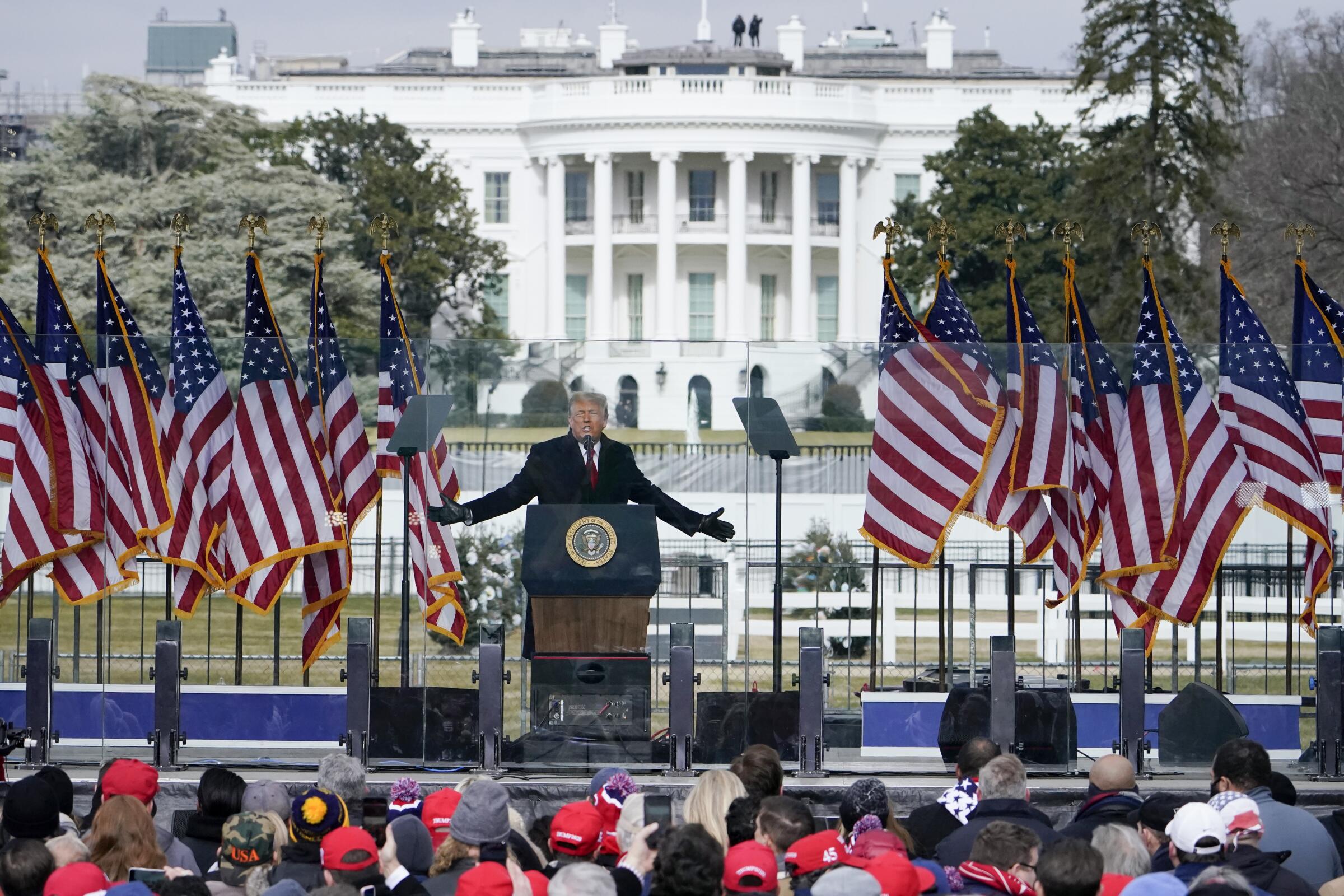WASHINGTON — There’s a beloved American axiom as old as the nation that “no one is above the law — not even the president.”
Every generation or so, that gets tested in the courts, and it’s about to happen again.
This week, former President Trump will ask a Washington appellate court — and soon after, probably, the Supreme Court — to rule in effect that, well, sometimes a president should be above the law.
Trump is the nation’s first former chief executive to be charged with a crime, but he argues that anex-president is immune from prosecution for “official actions” undertaken while in the White House.
Trump was indicted on charges of conspiring to obstruct the official certification of Joe Biden’s election victory and seeking to defraud Americans of their rightful votes. Trump is charged with four federal felonies and has pleaded not guilty to all charges.
The Justice Department has long maintained that a sitting president cannot be charged with a crime while in office. Impeachment is the only remedy for removing a sitting president who breaks the law.
But there is no clear precedent on whether a former president may be prosecuted for what he did while in the White House.
The outcome of Trump’s case could affect all future presidents, potentially subjecting them to prosecution from political rivals who come later.
A ruling in favor of Trump could also upend one of the most internationally admired aspects of the U.S. democratic system: the peaceful transition of government from one political party to another.
Here’s a look at the legal stakes raised by Trump’s immunity claim.







